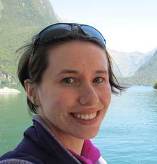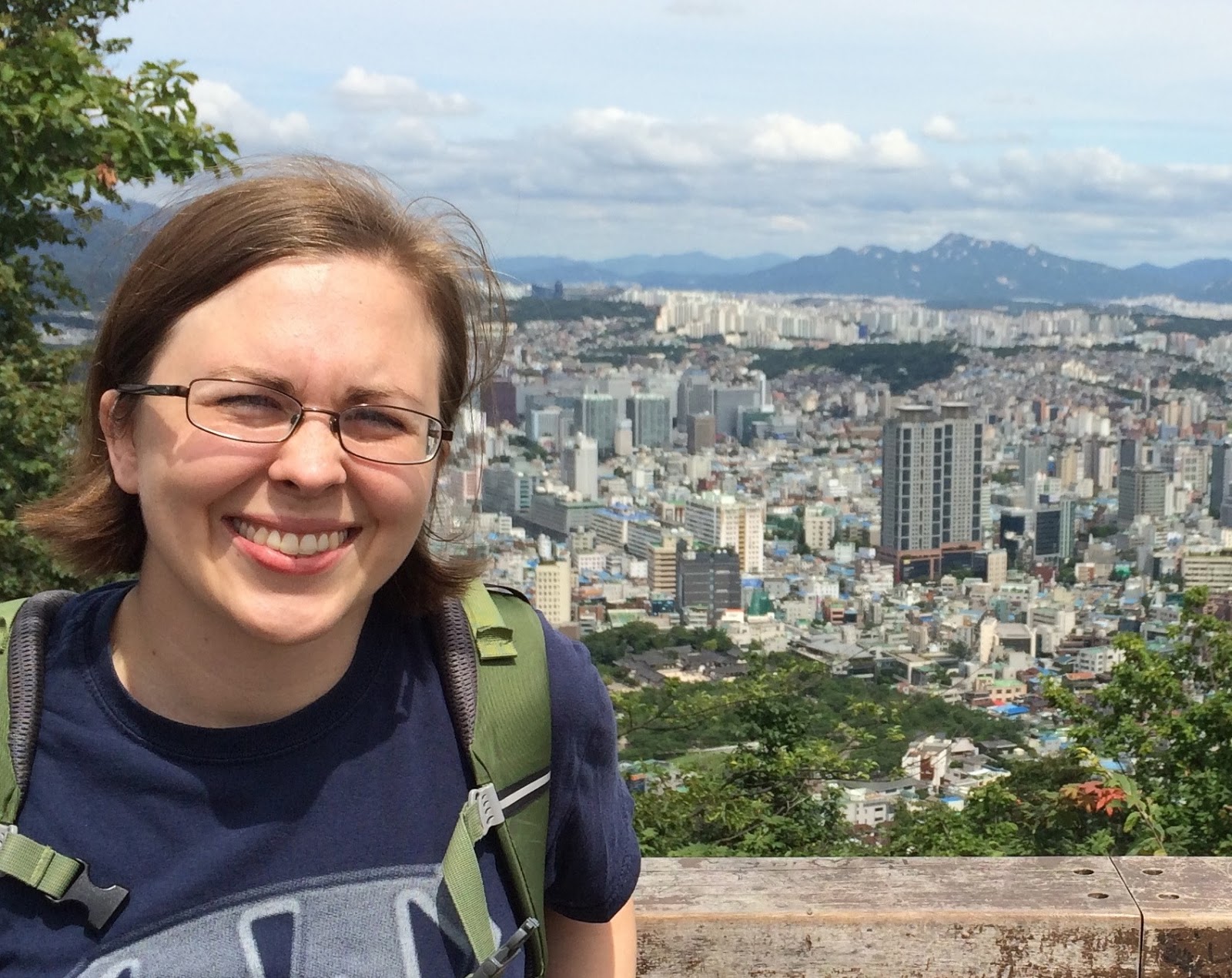January 17th, 2017 by IISG
August to November of my John A. Knauss Marine Policy Fellowship was non-stop. I have been learning about international fisheries policy in my placement within NOAA National Marine Fisheries Service, Office of International Affairs and Seafood Inspection Program all year and it was time to see it in action. My travels took me to five countries on three continents for five, very different international meetings.
Using the professional development funds provided by the fellowship, I traveled to Kuala Lumpur, Malaysia in August for the 34th meeting of the Scientific Committee on Antarctic Research (SCAR). The conference was directly related to my doctoral thesis work and also tied in with work that NOAA Fisheries does in the Southern Ocean on the United States delegation to the Commission for the Conservation of Antarctic Marine Living Resources (CCAMLR). Many scientists from other nations’ delegations were also present at the SCAR meeting and it was an incredible opportunity to meet international Antarctic researchers, many of whom I would see two months later in Hobart, Tasmania for the 35th meeting of CCAMLR.
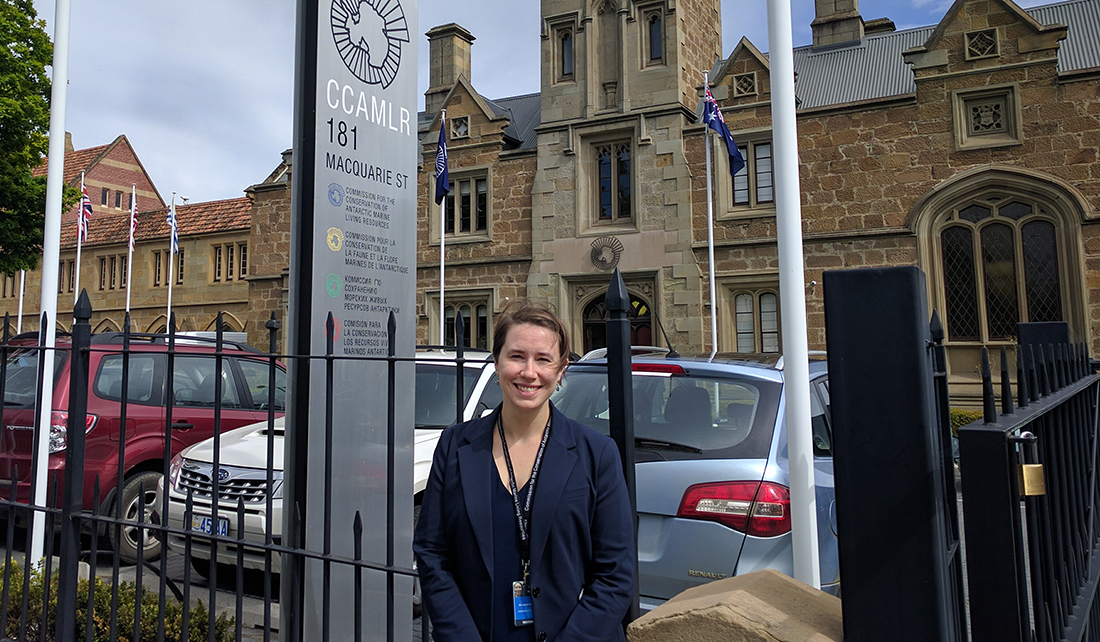
Lauren in Tasmania, Australia at Commission for the Conservation of Antarctic Marine Living Resources (CCAMLR).
I thought central Illinois and Washington, D.C., were hot and humid during August and that I was well prepared for August in Kuala Lumpur. It turns out that a few higher percentage points of humidity make a huge difference in comfort level. Thankfully my hotel was connected to the convention center, meaning trips outside could be planned strategically. I was also fortunate to be staying at the same hotel as the U.S. delegation to SCAR and they welcomed me into their morning breakfast meetings to learn more about the inner workings of the conference organization.
The conference itself was not only a great way to keep up on the current research in my field of fish physiology but also learn about areas of Antarctic research that I had previously never considered on topics as wide-ranging as algal ecology to architecture and literature. There were a number of panels and sessions devoted to scientific advice for policy which is a topic that is extremely relevant to the Knauss Marine Policy Fellowship as well as my role in my fellowship office. Many of the topics discussed would make a second appearance two months later during the CCAMLR meeting.
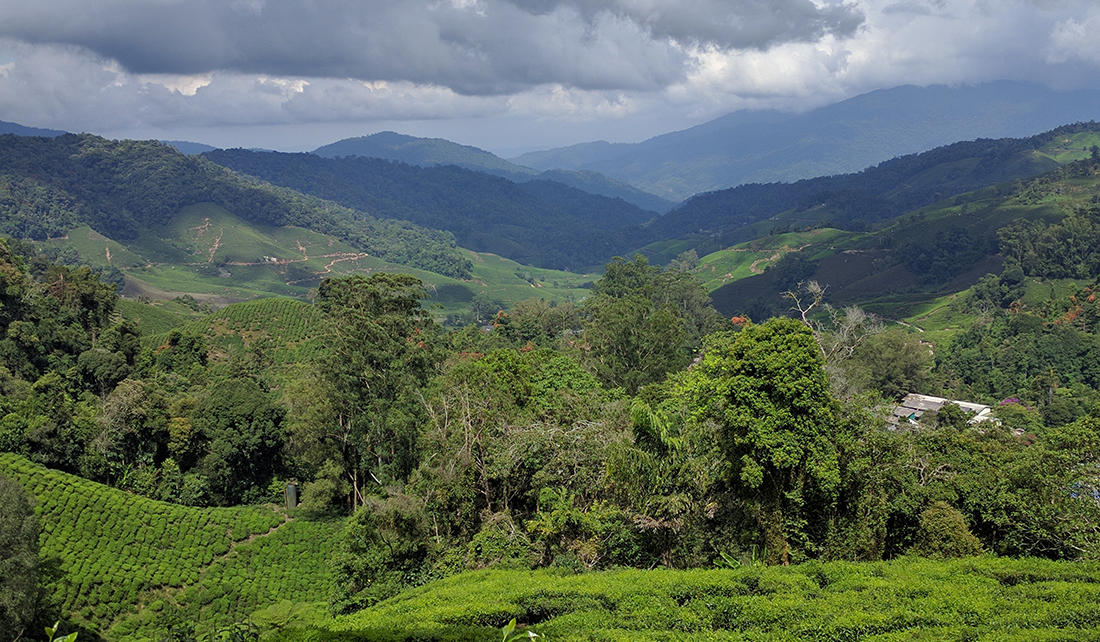
Malaysia tea plantation
The 2016 CCAMLR meeting in Hobart, Tasmania was an exciting meeting to attend. Many of the species I was familiar with from my doctoral work were discussed in terms of conservation or fisheries catch allocation in regions of the Southern Ocean that I was familiar with. One of my largest projects of my fellowship year was drafting a background paper for the U.S. delegation to present to CCAMLR on incorporating independent review of fisheries stock assessments in the CCAMLR convention area.
I was able to be in attendance as a member of the U.S. delegation and see this paper brought to the floor in front of the 24 member nations and the European Union and discussed. The most exciting event to come out of the meeting, however, was the passing and adopting of the Ross Sea Marine Protected Area, a 1.55 million square kilometer section of the Southern Ocean set aside for conservation. This proposal, which is also the world’s largest marine protected area, was six years in the making and its adoption was met with applause, hugs, and tears from the nearly 250 people in attendance at the meeting. It was an emotional and exciting meeting to be a part of.
My fellowship is coming to an end, but I will be continuing my work with NOAA Fisheries as a full-time employee and foreign affairs specialist beginning on January 23. I am so grateful for the experience and training that this fellowship has provided to me this year.
Please visit the Fellowship and Scholarship page for more opportunities.
Illinois-Indiana Sea Grant is a part of University of Illinois Extension and Purdue Extension.
December 19th, 2016 by IISG
My fascination with water began during my childhood. Growing up under strict water conservation measures in Singapore eventually led to working on nutrient loading issues relating to the Illinois River, and finally to my doctoral research on water quality in Alaska.
I brought all this to the Knauss Fellowship placement week in Washington D.C., where I proudly represented the Illinois-Indiana Sea Grant. Placement week started out with a brief overview of the structure of the House and Senate, and the processes involved in creating and passing legislation.
Then came presentations from the 23 host offices, during which I and the other 11 legislative finalists were introduced to the personal offices of various members of Congress from across the country, and House and Senate committees that directly work on legislation concerning the nation’s oceans, atmosphere, and freshwater resources.
Over the next two and a half days, I interviewed with 20 different host offices. While admittedly they were grueling, the interviews were also very rewarding. Through them, I learned about key pieces of legislation that impact much of the freshwater and marine resources I had previously worked on. More importantly, the interviews also enabled me to get to meet some of the incredible people serving in Congress as well as their staff, whose work for the benefit of their constituents is truly remarkable. Getting placed in a congressional office could not have been a better end to placement week for me.
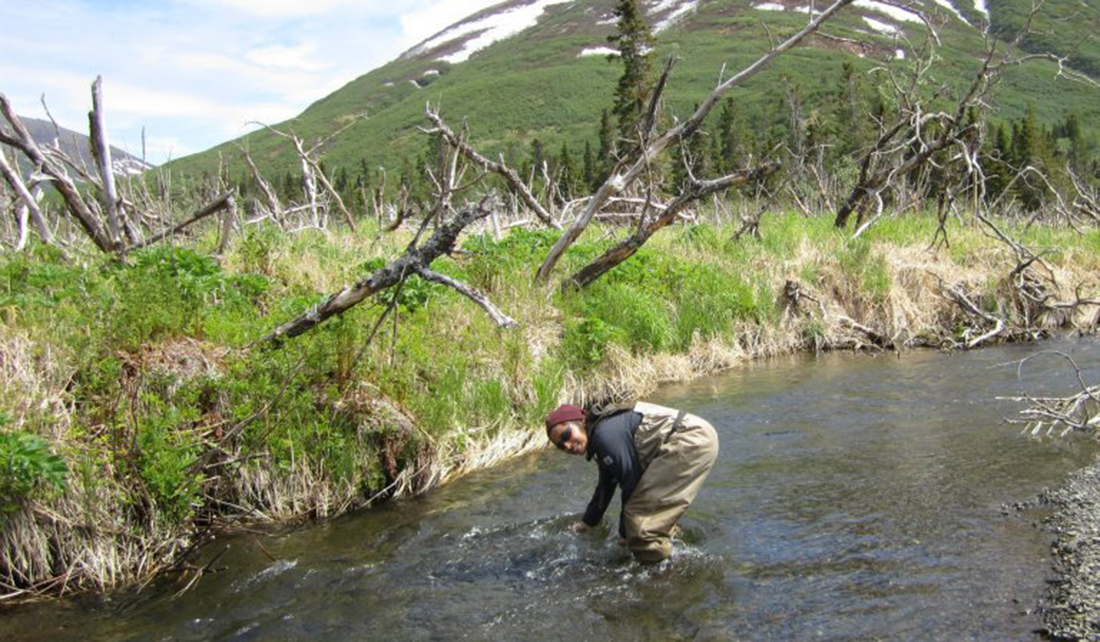
I am very excited to be a 2017 Knauss Fellow in the office of California U.S. Rep. Jared Huffman. I highly respect the path Rep. Huffman took before entering office, and the legislation he has sponsored and co-sponsored since then, especially in regard to natural resources. I look forward to directly assisting Rep. Huffman with his work on the House Committee on Natural Resources, with an emphasis on the Water, Power, and Oceans Subcommittee, which has oversight jurisdiction for NOAA fisheries and coastal issues. I also look forward to working with the committee staff, staff from other congressional offices, representatives from industry, non-profit groups, district field staff, and constituents living in California’s 2nd district.
Additionally, I will serve as the co-director of the bipartisan Congressional Wild Salmon Caucus. Given the grave issues California and the nation are currently facing in terms of water and coastal resources, I am confident that serving as a Knauss Fellow in this office over the next year will teach me a great deal.
Illinois-Indiana Sea Grant is a part of University of Illinois Extension and Purdue Extension.
February 8th, 2016 by IISG
I have always been interested in fish biology, growing up and scuba diving in Massachusetts, but I became interested in fisheries policy through my graduate work at the University of Illinois at Urbana-Champaign.
My doctoral research focused on Antarctic fish physiology, specifically the blood antifreeze proteins that these fishes have in order to survive in the extreme cold temperatures of the Southern Ocean.
My dissertation research showed a link between environmental temperature and antifreeze protein activity and concentration in different, commonly caught fish species in the Antarctic. One of the largest Antarctic fish species which possesses antifreeze proteins is the Antarctic toothfish (also known as the Chilean seabass).
We caught just seven of these fish during my first field season, and I learned about the toothfish fishing industry and the international politics regarding Antarctic resource management which falls under the jurisdiction of the Commission for the Conservation of Antarctic Marine Living Resources (CCAMLR)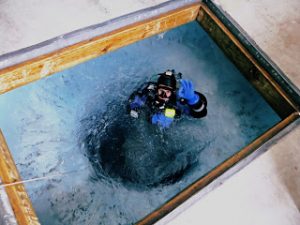 . I wrote grants to study this little-understood fish while at the University of Illinois and tried to learn as much as I could about CCAMLR and the research that goes into making policy decisions.
. I wrote grants to study this little-understood fish while at the University of Illinois and tried to learn as much as I could about CCAMLR and the research that goes into making policy decisions.
I am very excited to be a 2016 Knauss Fellow in the National Marine Fisheries Service Office of International Affairs and Seafood Inspection. I was placed within this office after a grueling but rewarding week of presentations and interviews in Washington, DC. I traveled to DC with 53 other incredible finalists for placement with hosts in the federal government. We heard presentations from the 56 possible host offices on projects ranging from fisheries, satellites, climate change, habitat, and many more. Over the next two and a half days I interviewed with 15 different offices, the majority of which were within NOAA, and by Friday I selected placement in the Office of International Affairs and Seafood Inspection.
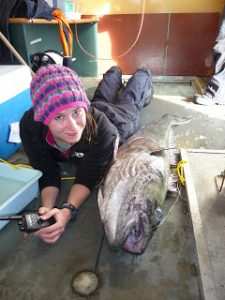 Though I do not know specifically what I will be working on, some of the projects could include the US-Mexico and US-Canada bilateral trade agreements, work with the International Convention for the Conservation of Atlantic Tuna, work with CCAMLR, and fishery bycatch policy. I will have a year of intensive international fisheries policy training where I am sure to learn a lot.
Though I do not know specifically what I will be working on, some of the projects could include the US-Mexico and US-Canada bilateral trade agreements, work with the International Convention for the Conservation of Atlantic Tuna, work with CCAMLR, and fishery bycatch policy. I will have a year of intensive international fisheries policy training where I am sure to learn a lot.
Lauren Fields, University of Illinois’ 2016 Knauss Marine Policy Fellow, received her PhD from the Department of Animal Biology at the University of Illinois in May. She started on February 1, 2016 with NOAA in Maryland.
For more information about the Knauss fellowships and other opportunities, please visit the Fellowship and Scholarship page.
December 7th, 2015 by iisg_superadmin
In late November, the 2016 Knauss Fellowship finalists from around the Sea Grant network met in Washington D.C. for a week to sort out where each will be working in the coming year. Over the week, the finalists interview for positions and try to match their skills and interests with agencies and legislators who are also looking for just the right person.
The Knauss fellowship provides a unique educational experience to students who have an interest in ocean, coastal and Great Lakes resources and in the national policy decisions affecting those resources. The program matches highly-qualified graduate students with “hosts” in the legislative and executive branches of government for a one year paid fellowship. This year, IISG had two finalists attending placement week.
Lauren Fields, who recently finished her PhD at the University of Illinois, will be a foreign affairs fellow with NOAA Fisheries Office of International Affairs and Seafood Inspection. This position reflects her long dedication to fish biology in the Antarctic waters. She has a particular interest in the Antarctic toothfish.
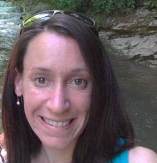
A Purdue University graduate, Sarah Stein will also be involved with NOAA fisheries work. For the year of 2016, she will hold the titles of executive secretariat and fisheries science coordinator in the Fisheries Office of Science and Technology. Sarah also has a rich history studying fisheries, but with a local focus. Her PhD dissertation study was centered on fish recruitment in southern Lake Michigan river mouth habitats.
If you are interested in applying to be a Knauss fellow, the deadline for 2017 positions is February 12. Visit our
Fellowship page for more information on this and other fellowship opportunities.
September 24th, 2015 by iisg_superadmin
I am working as a fellow in Congressman Alan Lowenthal’s (D-Calif. 47th District) office. When someone asks what a typical day looks like on Capitol Hill, it’s really difficult to answer.
Every day is unique, and there are often surprises. When Congress is in session, the best-laid plans can be upended by the President deciding to drop in on Capitol Hill to meet with members, or a carefully orchestrated vote running off the tracks.
I manage the activities of the Safe Climate Caucus, a group of more than 47 members who have made a point of talking about climate change in Congress. I write speeches, op-eds, memos, and keep the members’ staffers up-to-date on the latest news and research around climate change.

I staff Rep. Lowenthal on some of his work on the House Committee on Natural Resources issues. I brief him on the topic of upcoming hearings, write talking points and questions, and develop amendments for markup. I attend a lot of briefings to hear what Executive agencies are working on and how other offices are thinking about natural resource issues.
Other Congressional staffer activities I’m involved in are drafting legislation, writing letters to send to administration officials, circulating Dear Colleagues, organizing briefings, and meeting with constituents. I also have to find time to research legislation and prepare vote recommendations.
One question I often get is: “Do you have time off when Congress is not in session?”
The answer is “no.”
Recess, as it is called, is the time when things go at a normal pace and I can actually get research and writing done.

Congressman Lowenthal’s district includes the beautiful city of Long Beach and the picturesque Santa Catalina Island. I had the opportunity to visit in August and met so many wonderful people. NOAA, USC-Sea Grant, and the Aquarium of the Pacific hosted us on a boat tour of the harbor, where we discussed the impacts of sea level rise on the district.
I visited Catalina Island and learned about water infrastructure, the drought, and conservation efforts on the island. We gathered a group of people together to talk about how local researchers, government agencies, and businesses are working to understand the impacts of climate change and how to adapt. I also headed north for a few days to visit the Channel Islands Marine Sanctuary and discuss oil spills and whale-ship collisions in the Santa Barbara channel.
I am loving my year in Congressman Lowenthal’s office and hope to continue to work on Capitol Hill when my fellowship ends.
August 10th, 2015 by iisg_superadmin
Alyssa Hausman, a master’s student in environmental science at Indiana University, shares her experiences as a Knauss Fellow at the U.S. Fish and Wildlife Service.
I have had great experiences working with the Knauss fellows in the past, so when I started graduate school in 2012, I knew that this fellowship was an opportunity that I couldn’t afford to not pursue.
After an extensive application process, I found out last June that I was a finalist for the 2015 fellowship class as an executive fellow. As one of 40 executive fellows, I had a wide-range of offices and positions that I could potentially be placed in. Executive fellows placements span a range of departments: Commerce, Interior, Navy, Energy, and independent agencies such as the EPA and National Science Foundation.
After a daunting placement week, complete with 15 back-to-back interviews, I was placed with U.S. Fish and Wildlife Service — an agency dedicated to conserving fish, wildlife, and plants and their habitats. My fellowship with the Service’s Division of Congressional and Legislative Affairs provides me the opportunity to engage the legislative branch on important wildlife issues, and even work alongside Knauss fellows in the legislative branch. My work so far has focused on the Endangered Species Act, coastal resources, and wildlife, and sport fish restoration.
Throughout the course of the fellowship, I have been able to visit various Service assets, including Blackwater National Wildlife Refuge and the National Wildlife Repository. I recently spent a month in the Service’s regional office outside of Denver, Colo., which included a short trip to view conservation efforts in the Dakotas. These opportunities have taught me so much about the Service’s efforts on important issues that I do not work on directly, such as invasive species control, wildlife trafficking, and habitat conversion.

The National Wildlife Repository is responsible for receiving wildlife items that have been forfeited or abandoned to the U. S. Fish and Wildlife Service.
Now that I am half-way through my fellowship year and the next cohort of fellows has been selected, it is time for me to consider my next steps seriously. I have greatly enjoyed my time so far working with the Service and hope that I will have the opportunity to continue working with the agency, whether it be within the agency or outside as a partner.
Regardless of where I end up in February, I am looking forward to being a part of the Knauss alumni network and maintaining the personal and professional relationships that I’ve developed with my peers in the fellowship.
January 15th, 2015 by iisg_superadmin
As the 2014 Knauss season wraps up, IISG-sponsored graduate student Katherine Touzinsky wrote in to update us on her work at the U.S. Army Corps of Engineers since we last heard from her in August.
The last time I wrote for the IISG blog, I was overwhelmed with gratitude for how far the Knauss Fellowship had taken me—both figuratively through professional and personal development and literally by zig-zagging across the country. Since then, the travel and learning has not slowed down. I have eaten lunch on a dredging rig in the Gulf of Mexico, visited a research laboratory in Athens, Greece, attended a conference on deltas and climate change in the Netherlands, and explored the Everglades learning about the impending consequences of invasive species and climate change.
 The fellowship is now coming to a close, and the tides are changing at work. The open-ended learning ended a few months ago when I committed the majority of my time to a new and exciting project with the U.S. Army Corps of Engineers.
The fellowship is now coming to a close, and the tides are changing at work. The open-ended learning ended a few months ago when I committed the majority of my time to a new and exciting project with the U.S. Army Corps of Engineers.
Ever since the devastation of 2011, when over 14 weather and climate-related events—Hurricane Sandy being the most noteworthy—resulted in an unprecedented loss of lives and property, many federal agencies have begun their own investigation of climate change and disaster preparedness under the broad headline of “resilience.”
Resilience is an ambiguous word that can mean different things depending on the case and application, but most definitions include four key aspects: prepare, resist, recover, and adapt. Because the Corps is in charge of the nation’s water resources infrastructure, there is a huge need to investigate these concepts and research the best way to apply resilience to Corps policy and practice. I have been offered the opportunity to assist with much of this initial research. While it is intimidating to face such a huge issue and figure out how to recommend solutions for such a huge and venerable organization like the Corps, I wake up every day excited to learn more.
This coming February, we are working on a joint U.S. Army Corps and NOAA workshop to quantify resilience in Mobile Bay, AL. I will help test the method by working with community experts from the Mississippi-Alabama Sea Grant Consortium and the local port authorities to be vetted later this spring by the National Academy of Sciences Transportation Research Board.
Despite all of this excitement, I know that my Master’s thesis is still waiting for me. Luckily, I have been given the opportunity to continue working in Washington D.C. at the Corps headquarter office and will work part-time on my thesis. I’m brainstorming possible locations to work on the thesis—it would be great to say that I wrote a chapter or two in the Library of Congress!
The Knauss Fellowship has been an unbelievable opportunity that continues to unfold!
January 8th, 2015 by iisg_superadmin
As the 2014 Knauss season wraps up, IISG-sponsored graduate student Sara Paver wrote in to update us on her work at National Science Foundation Division of Ocean Sciences since we last heard from her in July.
The last few months have been a whirlwind of activity. In my placement as a Knauss Fellow in the Division of Ocean Sciences at the National Science Foundation, I have continued working with the Coastal Science, Engineering, and Education for Sustainability (Coastal SEES) working group and the Biological Oceanography Program. I am currently leading the efforts of the working group to organize and plan the Coastal SEES Principal Investigators’ Meeting, which will be held January 29-30, 2015. I am looking forward to meeting the 2013 and 2014 Coastal SEES awardees and hearing about the exciting work they are doing to make progress on coastal sustainability issues.
As part of my work with the Biological Oceanography Program, I have been helping manage the review of five grant proposals. I am currently writing analyses that summarize the reviewers’ feedback and explain whether or not the proposal is being recommended for an award.
In addition to the work I’ve been doing at NSF headquarters in Arlington, VA, I have had the opportunity to participate in valuable professional development opportunities. I presented my dissertation research at the International Society for Microbial Ecology meeting in Seoul, South Korea. I also participated in the Explorations in Data Analyses for Metagenomic Advances in Microbial Ecology Workshop at Kellogg Biological Station in Hickory Corners, MI. Ashley Shade, Tracy Teal, and Josh Herr put together an excellent week of learning modules, lectures, and guest speakers. My favorite highlight—out of many—was the question and answer session we had with Jim Tiedje.
Most recently, I traveled to Hawaii to participate in the Ecological Dissertations in the Aquatic Sciences (Eco-DAS) Workshop at the Center for Microbial Oceanography: Research and Education. It was a wonderful opportunity to meet peers who, like me, have recently finished a Ph.D. or will be finishing very soon. As a result of participating in Eco-DAS, I am working on two collaborative manuscripts. It was a great week to get excited about science and collaboration.
The best part of my fellowship has been all of the connections that I have made with people, including my colleagues at NSF, the other fellows, people in the Illinois-Indiana Sea Grant Office, individuals that I interacted with during Knauss placement weeks and Knauss professional development activities, researchers serving on NSF panels and giving presentations at NSF, and people I interacted with at the workshops and conferences I attended. The opportunity to be a Knauss Fellow has broadened my perspective on many things, including available career paths. I might consider coming back to NSF as a rotating program officer in the future. In the near term, I plan to return to an academic setting in a postdoctoral research position.
December 12th, 2014 by iisg_superadmin
The two IISG-sponsored Knauss Fellows selected for 2015 recently returned from D.C., where they met with other fellows, interviewed with government agencies and offices, and learned where they spend the next year working on water resource and environmental issues. Rachel Gentile, who is completing a PhD in Biological Sciences at Notre Dame, shares her experiences.
 My placement is in the office of Rep. Alan Lowenthal (CA-47). I will be assisting with his marine policy portfolio and will also be directing the House Safe Climate Caucus. This means I will be managing the activities of the caucus and assisting with floor speeches, op-eds, and short videos to promote climate change awareness in the House of Representatives. I applied to the Knauss Sea Grant Fellowship because I wanted to assist with discussions concerning marine and climate issues on Capitol Hill, so this placement in Rep. Lowenthal’s office is a dream come true!
My placement is in the office of Rep. Alan Lowenthal (CA-47). I will be assisting with his marine policy portfolio and will also be directing the House Safe Climate Caucus. This means I will be managing the activities of the caucus and assisting with floor speeches, op-eds, and short videos to promote climate change awareness in the House of Representatives. I applied to the Knauss Sea Grant Fellowship because I wanted to assist with discussions concerning marine and climate issues on Capitol Hill, so this placement in Rep. Lowenthal’s office is a dream come true!
Placement week was a whirlwind of excitement for me. I thoroughly enjoyed meeting the other finalists, Knauss alumni, and the legislative hosts. I also learned a lot about the legislative process and my future role as a Knauss Fellow.
At the beginning of the week, we attended a series of lectures facilitated by the Congressional Research Service (CRS) and the Library of Congress. We learned how politics, policy, and procedure come together inside the walls of congress to pass—and fail—bills. We were introduced to CRS subject librarians and research specialists in marine, climate, and energy policy who will be incredibly helpful to us as we research these issues and write memos, talking points, floor speeches, and legislation.
Most of the week was spent in interviews with the host offices. I interviewed in 17 different offices over three days. I loved hearing about the work each office was doing. Many hosts talked about fisheries, marine national monuments, climate change adaptation, water and drought issues, and ocean acidification. There are many marine policy issues currently being addressed in congress, and as a Knauss Fellow, I will assist my host office with them.






